ELEMENTAL ENERGY (2003 ALBERTA) INC. / RENUWELL.CA The oil and gas industry has fueled our society through a period of unprecedented economic prosperity for more than a Century. Given this vital role at the core of our industrialized world, who could have imagined that NextEra, a Green Energy utility would ever be worth more than ExxonMobil or Tesla, an electric car company, could ever be valued more than Toyota, Ford, GM and Fiat Chrysler combined? In January 2010, with oil prices at $80/bbl, if someone told you that oil prices would be $60 on January 2020, then fall to $30 in March and negative $37 in April, would you have believed them?
What’s going on? Are these trends sustainable? What is the role of a geoscientist in this crazy new world?
My last article in the CSEG Recorder was an abstract for my June 2008 Luncheon presentation. While I primarily focused on improving production in oilsand reservoirs, I also addressed the intimate connection between oil prices and economic growth. To provide some background, my career in Alberta’s oil and gas industry started in 1977, shortly after the energy shortages that were caused by the Arab Oil Embargo. Starting in 1980, economic growth correlated directly with annual oil production increases of 700,000 bpd until production peaked at about 82 MBOPD. Between 2005 and 2008, world oil production stalled below 83 MBOPD while prices increased from $35 to more than $100 per barrel. It seemed increasingly obvious that something had to give. Seeing this pattern slowly but steadily emerge, I became a devoted follower of Peak Oil theory and I made the decision to leave my 30-year career as a research geoscientist to learn whatever I could about sustainable living and alternative energy before it was too late. In fact, I was packing up my family and heading for the hills when I was invited to give one last CSEG presentation before I left town….
On the day of the luncheon, oil prices exceeded $140/barrel for the first time in history. Three months later, the world economy collapsed.
As the economy recovered, oil prices rose from $80/bbl in 2010 to $100/bbl in 2014. This relatively stable period of high oil prices drove the rapid expansion of high-cost unconventional projects resulting in US shale production increasing from 5 MBOPD to 9.5 MBOPD and Alberta’s bitumen production increasing from 1.5 to 2.5 MBOPD. During this time, I was drawn back to the industry to work on high-profile oilsands projects that were encountering production problems. This phase of my career lasted until the Saudis flooded the world market and collapsed oil prices in their first attempt to reclaim market share from the “high-cost” producers….
Motivated by this unexpected increase in free time (and a major loss of income), I decided to revisit the renewable energy projects that I had started back in 2009. Imagine my surprize when $600 purchased 500 watts of solar generation capacity compared to the 40-watt panel that cost $600 in 2009. Based on this incredible improvement in solar economics, I decided to explore options for creating a new business in the solar industry. To be completely honest, I was also motivated by the fact that there is a mature oilfield underneath our family farm in Southern Alberta and my Mother was depending on the lease rental payments for part of her retirement income. Through an odd twist of fate, my father, who was a production battery operator, had spent many years of his career operating that field and I knew it was reaching the end of its productive life. Recognizing that the rental payments would end once the well leases were reclaimed and that electricity costs were one of the biggest expenses for operating the field, I thought it would be an excellent idea to convert some of the abandoned leases to solar generation and provide power for the remaining operations. This concept was the beginning of the RenuWell Project.
From that time onward, I devoted my time to learning about utility-scale solar and I found that many of the technical skills which I gained in my geoscience career were easily adapted to solar project development. These transferable skills included:
- programming
- ray-tracing
- simulation modeling
- geostatistics
- project management.
I also realized that the work that I did in my geoscience career was just another form of real estate development. Exploration geoscientists provide information about the land value and production geoscientists help optimize the developments. This insight was directly transferable to renewable energy where the value of the real estate is determined by the solar, wind, geothermal or lithium resources and the costs are related to land access, development efficiency, equipment, and proximity to the grid connection locations.
While the technical aspects proved relatively easy, I did not anticipate the complexity of oil and gas liabilities, the electricity utility sector and energy regulations. I also radically underestimated the political divide between conventional and renewable energy. Fortunately, with encouragement from the Alberta Energy Regulator, the Orphan Well Association, and landowners, we were able to secure a location for a pilot project. As soon as this site was secured, one more obstacle– the need to secure development permits from the municipality-appeared. Thanks to the Municipal District of Taber and funding from the Municipal Climate Change Action Centre (MCCAC) Community Generation Capacity Building Program, this obstacle turned into an opportunity to create a policy framework that facilitates the transition of oil and gas liabilities into assets for the renewable energy sector. Finally, with support of several partners, including the MD of Taber, IRRICAN Power Co-op, Canadian Solar Inc, Skyfire Energy, Iron and Earth and Medicine Hat College and with funding support from the MCCAC and Alberta Innovates Municipal Community Generation Challenge, the RenuWell Project is converting 2 orphan well locations into 2 MW of solar generation capacity.
Beyond the pilot phase, converting 10% of Alberta’s inactive oil and gas leases to solar projects would result in 6,200 MW of solar generation capacity, 9.9 billion in solar investment, cost savings of up to 40% for oil and gas reclamation while creating more than 77,500 full time construction and 1,860 permanent jobs. At the same time, the RenuWell Project would provide continued lease rentals for landowners, reclamation savings for O&G producers, reduced costs for solar developers and much needed tax revenue for municipalities. It would also position Alberta as the leader in transitioning legacy infrastructure to solar development and create export markets for Alberta companies.
For those of us who are facing career uncertainties, and especially those who believe another oil and gas boom is just around the corner, we need to be aware of some fundamental changes that have happened over the past decade.
1. Renewable energy costs have dropped below the cost of oil and gas
- Solar and wind energy in Alberta can be generated for less than 5 cents/kWh.
- Using standard conversions, a litre of gasoline has the energy equivalent of 9 kWh – which means the equivalent cost of solar electricity is less than 45 cents per litre
- 5 cents per kWh is roughly the price of natural gas required to generate electricity (not including the cost of building and operating the powerplants).
2. Electric Vehicles are here to stay – and they will have a big effect on oil and gas consumption
- Last month, we acquired a 2020 Toyota Plug-in Prius and we have driven more than 1700 km on 32 litres of unleaded gasoline.
- Not only is the car more quiet, smooth and fun to drive in EV mode, it also gets a combined (EV and hybrid) equivalent of 54 km/litre or 153 mpg.
- EVs can be charged using electricity generated by solar panels making the cost of energy virtually free.
- The on-board batteries can also store renewable energy and sell it back to the grid.
Imagine how the growing adoption of these vehicles will impact oil and gas demand.
On the positive side, there are tremendous opportunities for productive and exciting careers in the emerging low-carbon economy as demonstrated in the following submissions from oil and gas professionals who have transitioned their careers into the following fields:
- Solar Energy
- Hydrogen
- Geothermal
- Energy policy development
- Career transition and training
These contributions shed light on an often-overlooked reality. Energy is a vital component that powers our modern societies, and Energy is not just another name for Oil and Gas. Energy is Energy.
So – What is the role of a geoscientist in this Crazy New World?
As a 40+ year veteran of the Oil and Gas industry, I know that nothing can replace the skills, education, experience, commitment and dedication of a seasoned energy industry professional. Working with like-minded professionals, you can utilize your technical expertise and project management experience to solve meaningful problems, accomplish difficult tasks and build complex projects. You can continue to provide value for the energy industry, stability for the Province and this will translate into security for your communities and families. There are tremendous opportunities for career advancement, professional development, creativity and innovation in a rapidly evolving industry.
The same combination of talent, skill, education, entrepreneurship, cooperation and hard work that created Alberta’s world-class oil and gas industry can be harnessed to master these new and sustainable sources of energy and this will transform Alberta into an Energy Superpower for generations to come.
To learn more, attend the Solar Alberta webinar on January 21st at 12:00 MST which explores how Renewable Energy can help Oil and Gas Companies through the energy transition.
To get more directly involved, contact:
- Iron and Earth for career transition training and advocacy
- The Municipal Climate Change Action Centre for information and funding opportunities
- The Clean Resource Innovation Network for networking and information
- The Energy Futures Lab for programs, information and volunteer opportunities
Or you can contact any of the authors directly for information on their specific projects.
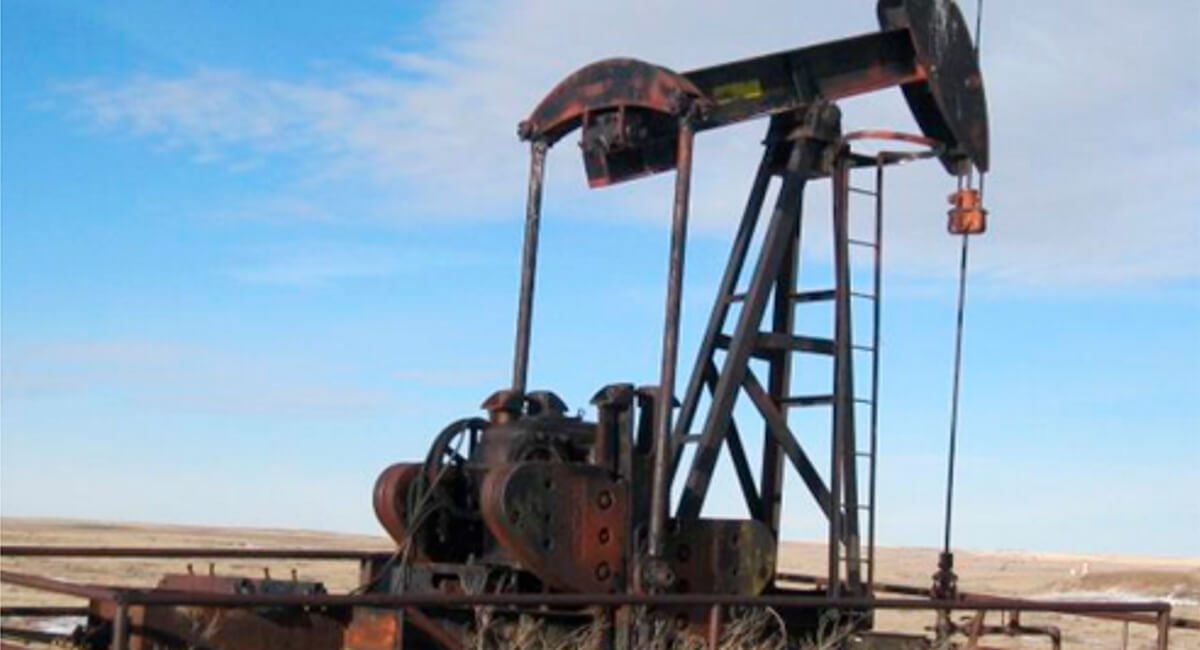
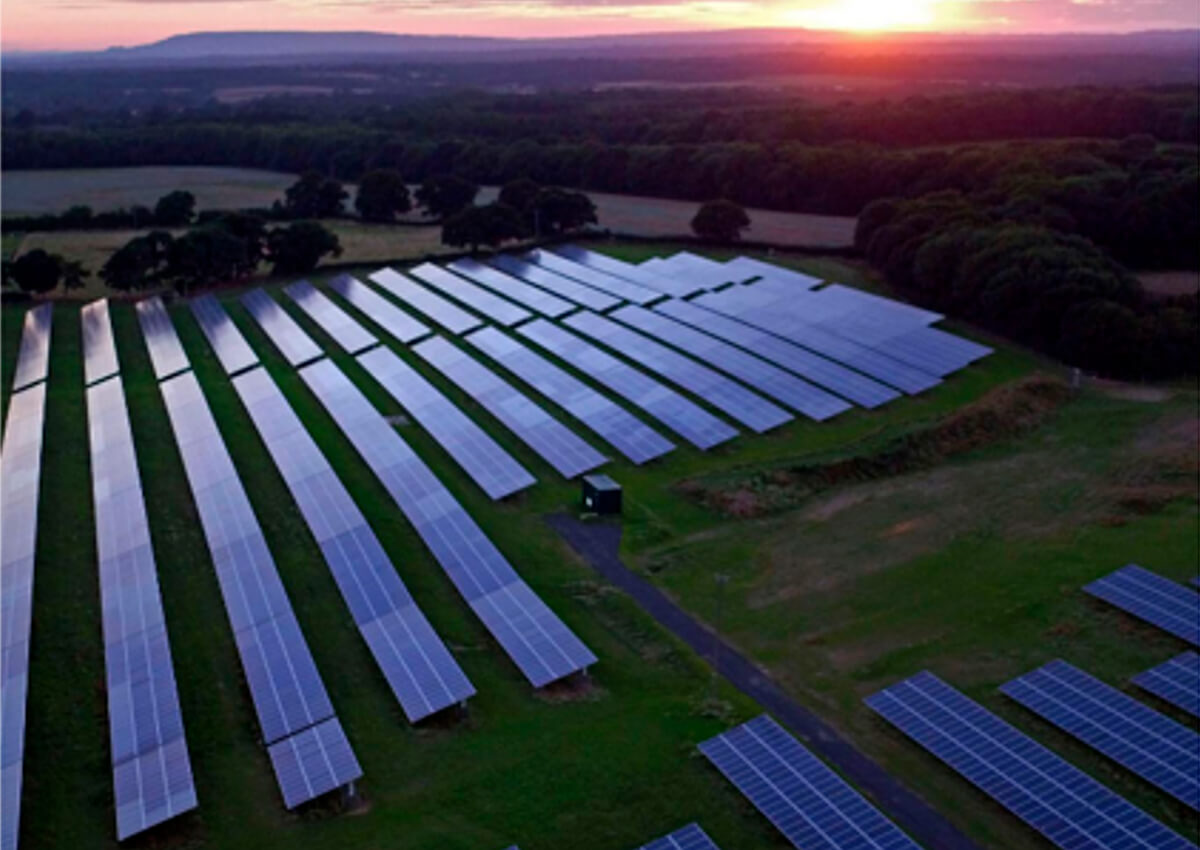
Top: 155,610 inactive wells 311,220 acres requiring reclamation
Bottom: 5,000 MW planned: 35,000 acres required for solar
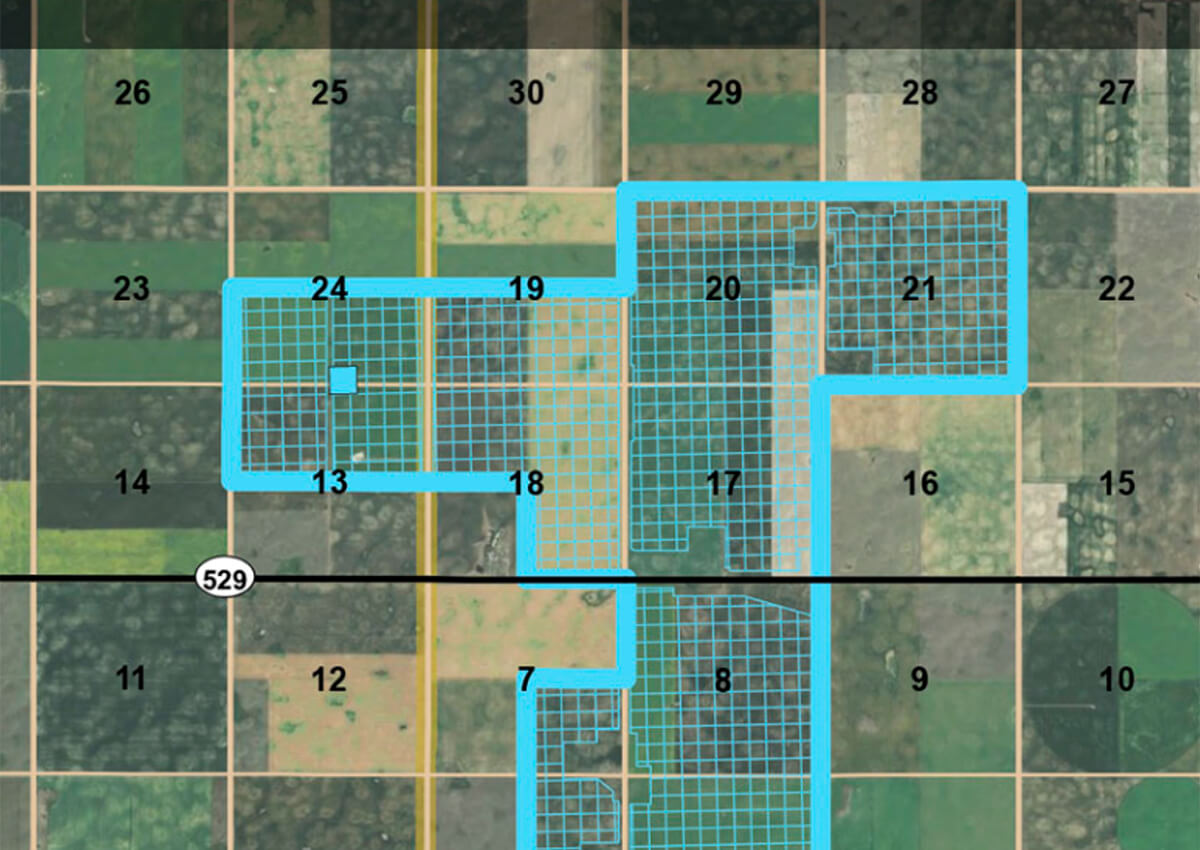
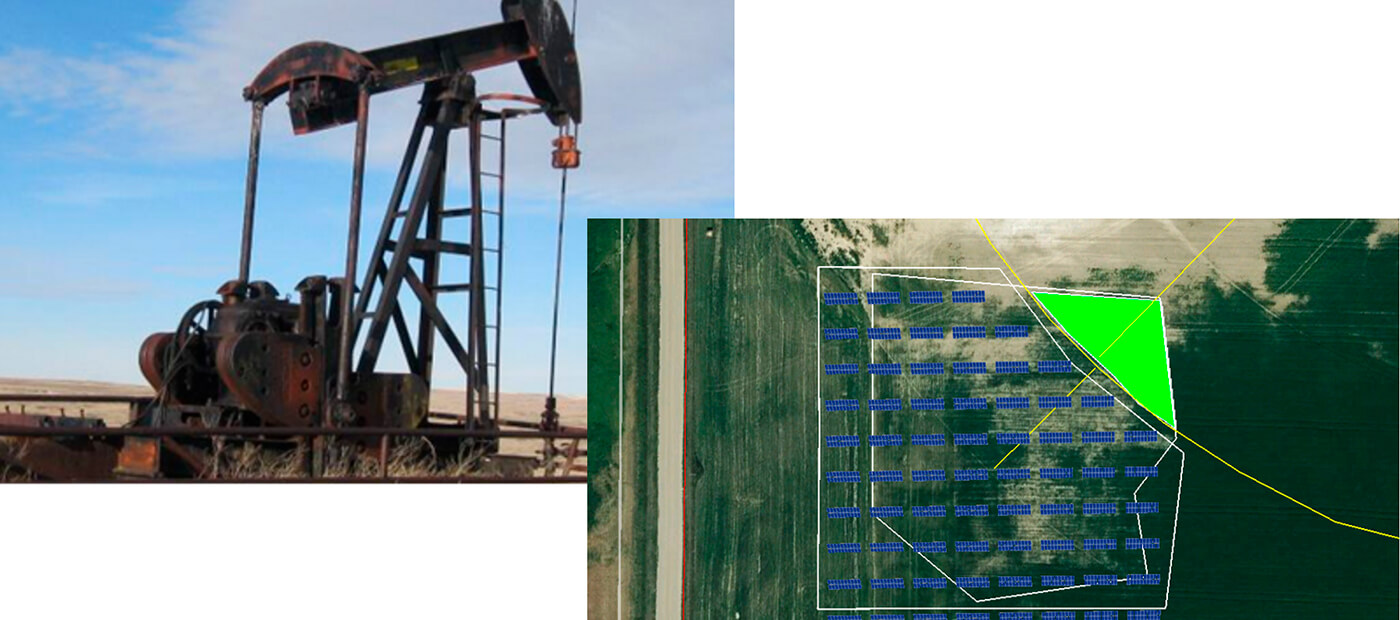
Top: Conventional Utility-scale solar 400 MW solar on 2,000 acres https://greengatepower.com/travers-solar-400-mw
Bottom: Converting 25% of inactive leases to solar would create 400 MW in M.D. of Taber without removing argricultural land
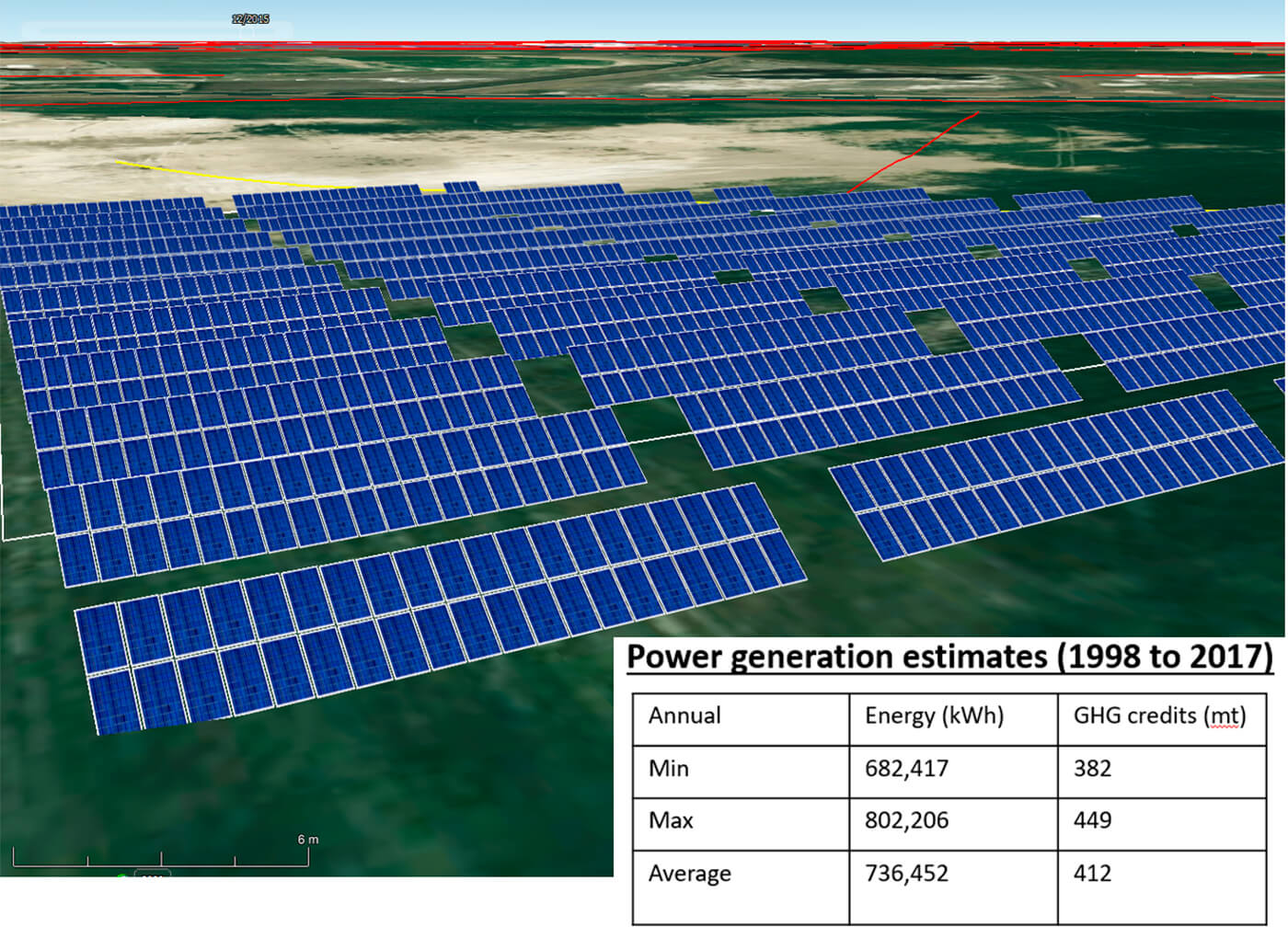











Join the Conversation
Interested in starting, or contributing to a conversation about an article or issue of the RECORDER? Join our CSEG LinkedIn Group.
Share This Article